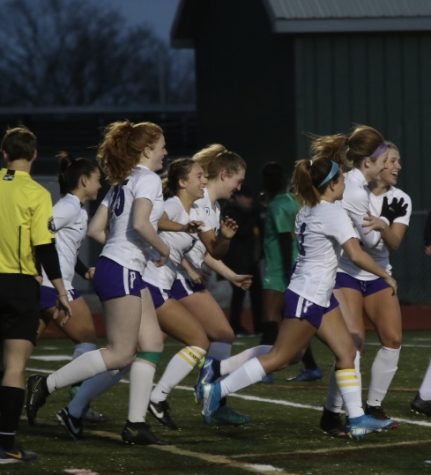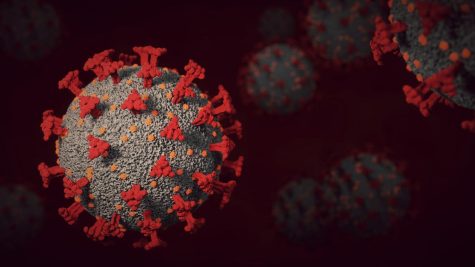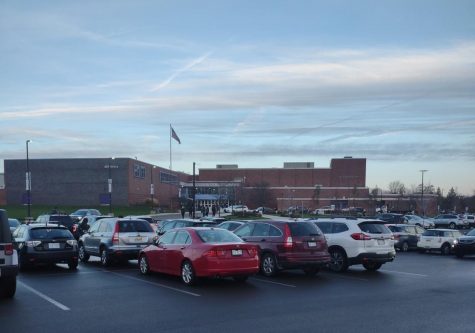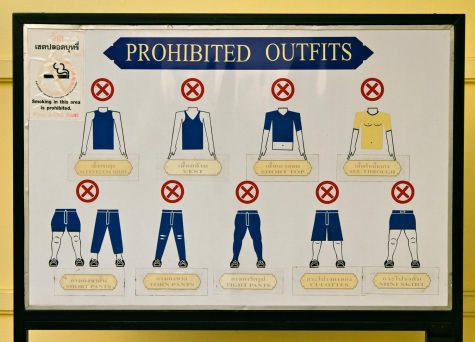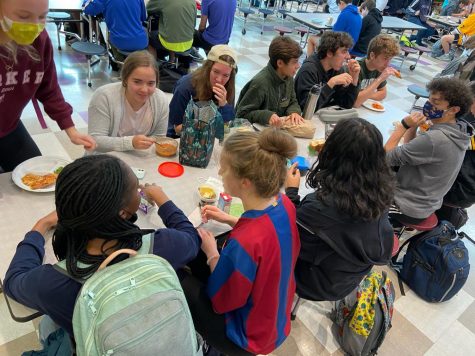Dear Fellow Students; How Strikes are More than Skipping Class
Students walk to city hall.
Do you think you’re going to change anything?
What difference does it make?
Why even bother?
The amount of times these lines have been planted in my mind from skeptical adults or peers is innumerable. As I prepared to participate in the climate strike on March 15th, my parents only begrudgingly agreed to let me go, and the majority of my classmates said, “I have a math test,” or, “It’s not really worth it.” With every nonchalant response, my frustration and anger grew.
Youth activism has been dismissed for as long as it has existed. In the March for Our Lives movement, young people were told repeatedly that their opinions are irrelevant and their walkouts are an excuse to skip school. But looking back throughout history, the majority of grassroots activism has been led by the younger generations. During the Birmingham Children’s Crusade, elementary through high school students marched the streets in protest of Jim Crow laws and helped the Civil Rights Movement gain national attention. The protests against the Vietnam War swept across college campuses, most famously as the University of California Berkeley and Kent State University. According to National Geographic, college students established the Student Nonviolent Coordinating Committee, “the nation’s largest and most well-organized civil rights group.” Progressive movements throughout history have continuously been initiated and sustained by youth action. And as we can easily discern today, these movements were instrumental in creating change. So why is it so tremendously difficult for people today to believe that the youth have an impact?
The House of Representatives just recently passed the Bipartisan Background Checks Act of 2019, which is the most extensive gun control legislation passed in two decades, according to U.S. News. Although the bill is unlikely to survive the Senate and President Donald Trump, it signifies the impact of the March for Our Lives movement, largely led by high school students.
According to Vox, following the Climate Strikes that over 1.4 million students participated in, the United Nations has announced that they will hold a Climate Action Summit in the fall of 2019 to “boost ambition and accelerate actions to implement the Paris Agreement.” This was set into motion by the stunning show of power and anger by students across the world during walkouts on March 15th, led by youth activists such as Greta Thunberg, a 16-year-old nominee for the Nobel Peace Prize. It is clear that the youth of today holds just as much power as those that preceded them, and with the addition of social media, it is arguable that we have the ability to create even more widespread change.
Perhaps the power of youth is recognized by some, but another question seems to persist; why should you even care? A vast part of my peers have echoed the same sentiment; “Surely gun control or climate doesn’t directly affect me. I read about it on the news, but it’ll never personally touch me.”
But on this year’s St. Patrick’s Day, I anxiously waited for news from my friends as fear of a shooter gripped the University of Michigan campus. Mass crowds were shoved into buildings, and terrified people barricaded doors with projectors, chairs, and anything else they could find. Over 3,000 people were listening to a live broadcast from the police station.
Climate change has worsened to the point in which planting more trees is doing too little to reverse the effects of climate change. Even if we halt carbon emissions today, the global temperature will reach dangerous levels regardless. The Michigan Climate Action Network states that the resulting higher temperatures of climate change will worsen the air quality and may increase the evaporation of the Great Lakes, causing their water levels to decline. Sometimes instead of pondering my future career, I imagine if I will even be able to leave my house without fear. Will the world remain as we know it? Will I be able to share the beauty of our world’s largest bodies of freshwater with my children? Or will forest fires and hurricanes ravage the graves of politicians that we allowed to steal our futures?
This is why our activism can no longer be dismissed. These movements are bigger than your math test; they determine if you have a future for that math test to affect. We are inspired by the movements in history textbooks, and yet so many fail to see these events today will comprise the history textbooks of tomorrow. We have the opportunity to fight for a change whose effect will be felt for years.
If you still remain unconvinced, then shame on you. Shame on you for ignoring as Americans increasingly die in mass shootings. Shame on you for disregarding the urgent warnings of over 97% of scientists. But most importantly, shame on you for allowing the older generations to decide the fate of a world they will never live in.


